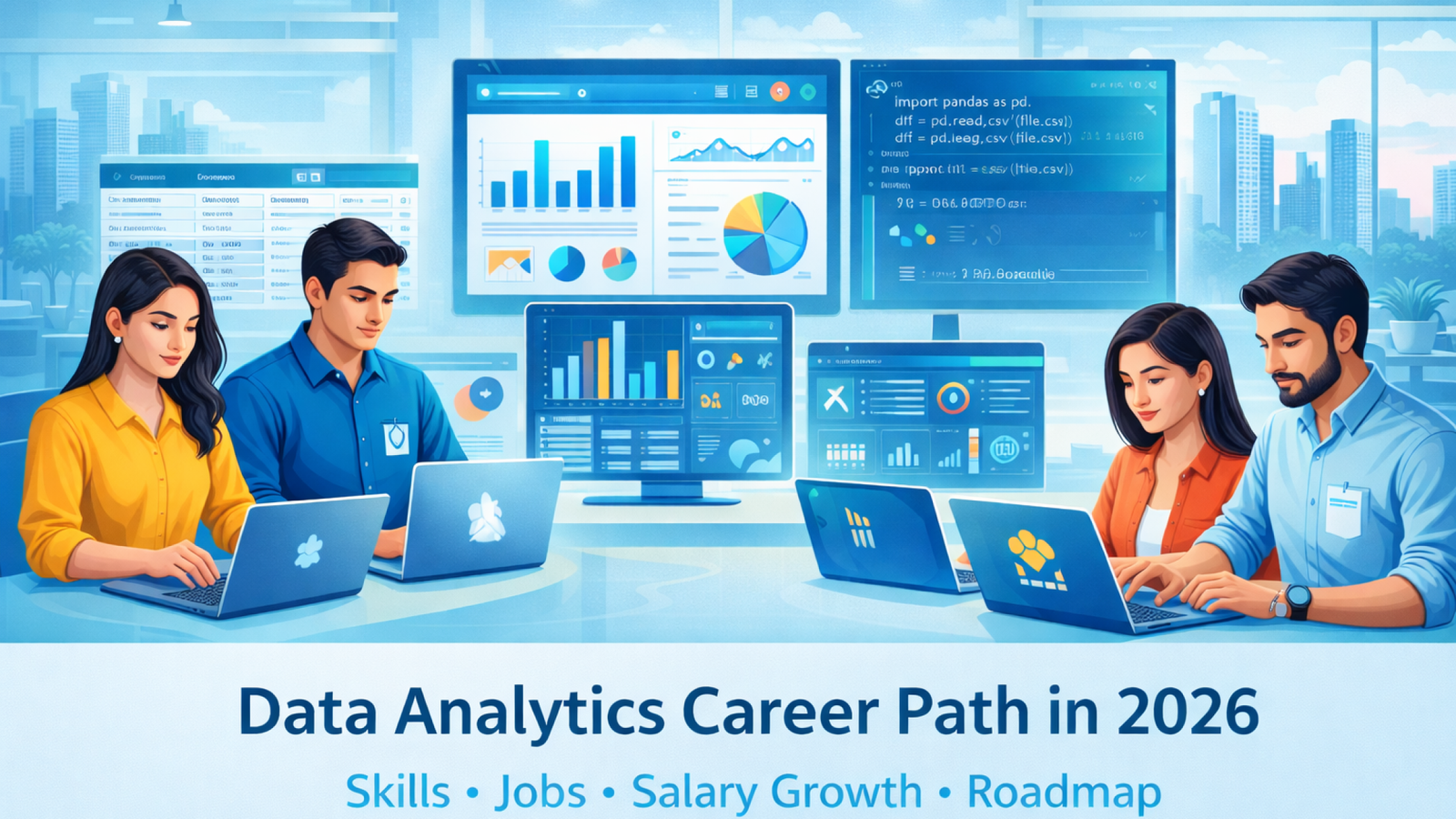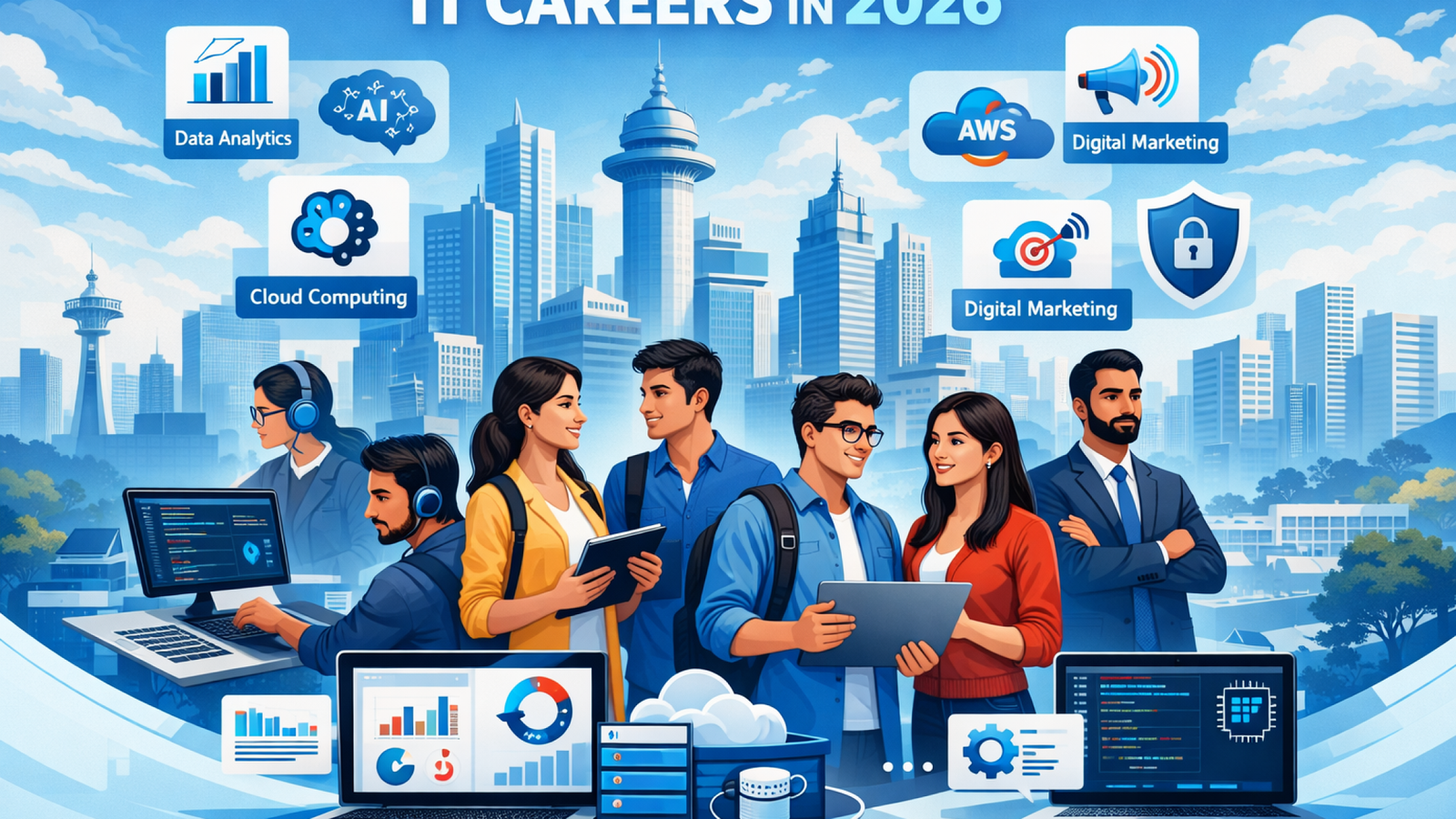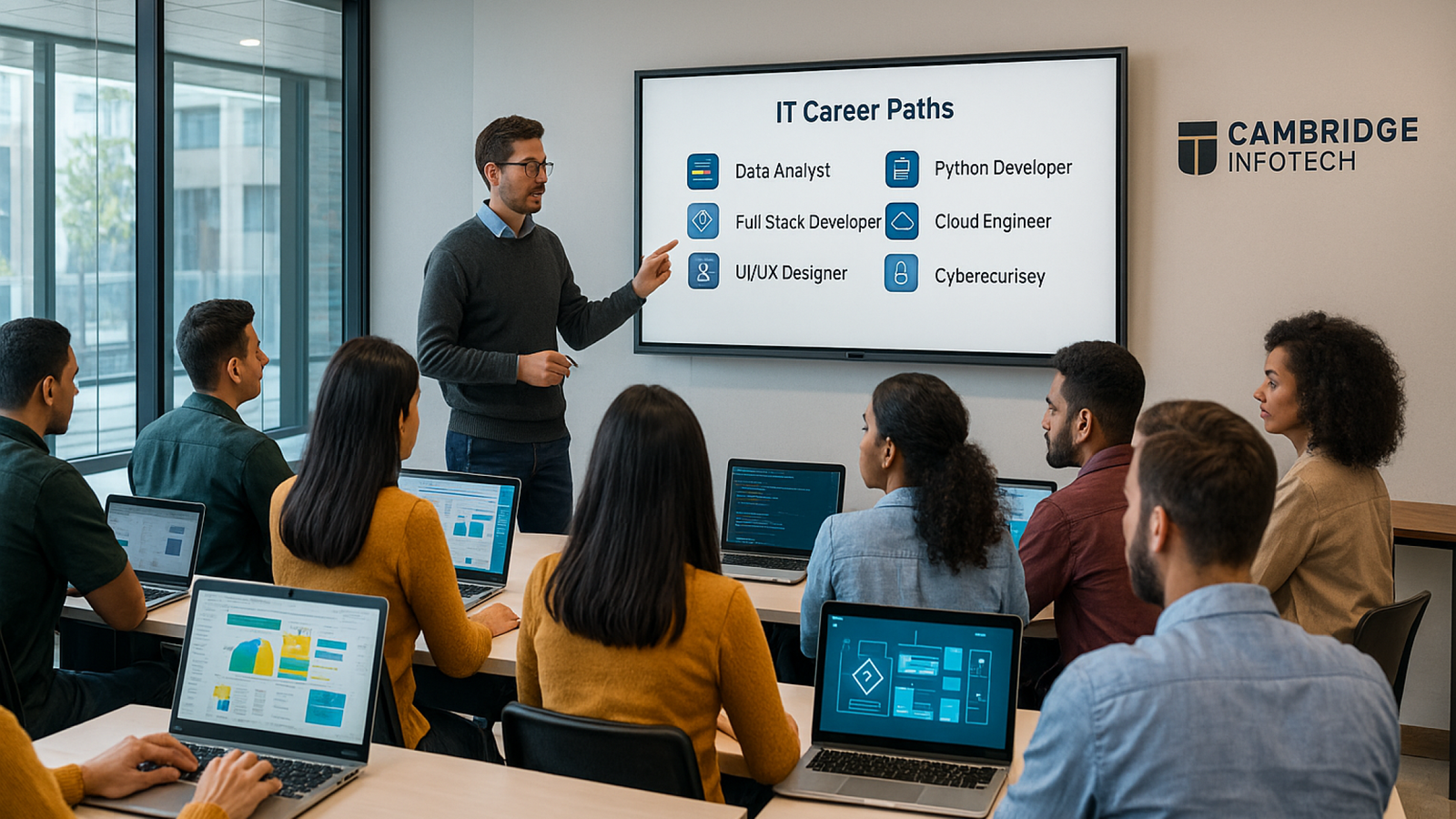Key Technology Trends for 2026: Shaping the Future of Careers and Businesses
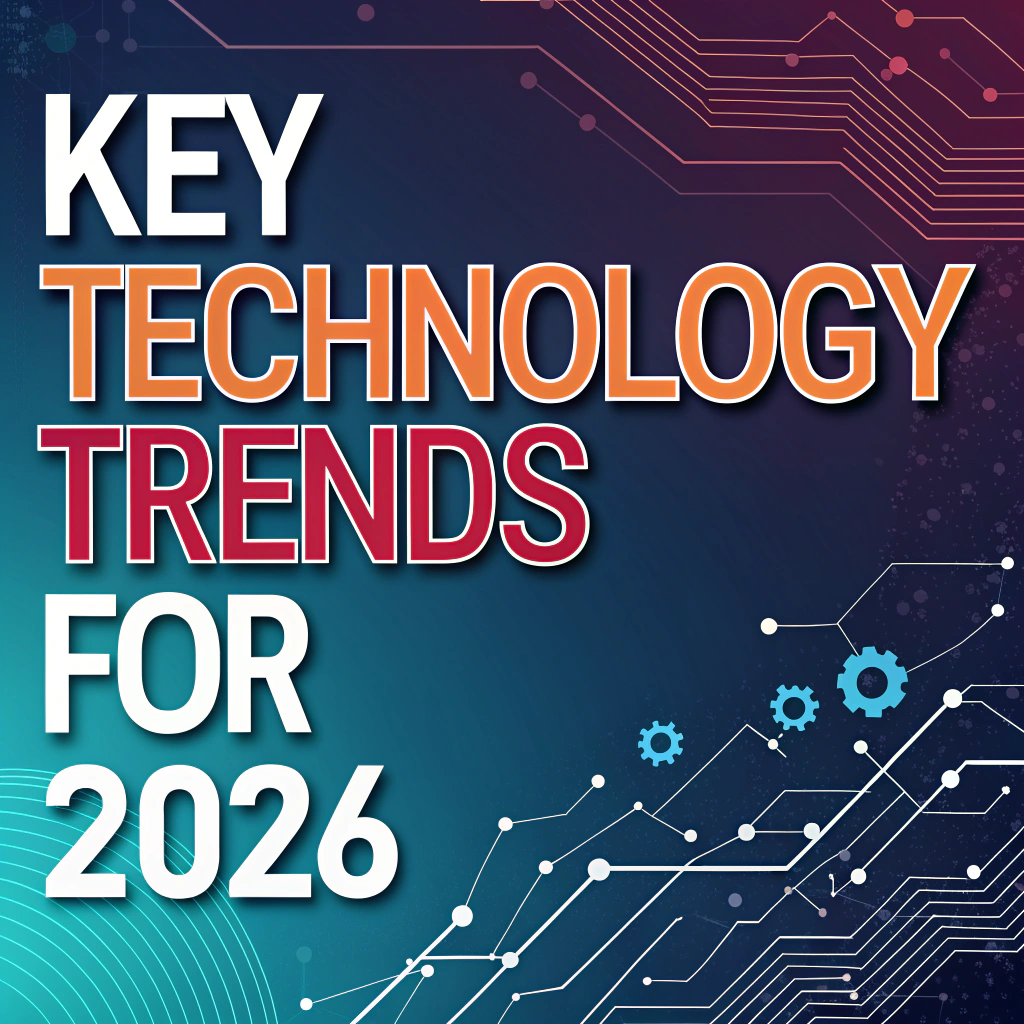
Introduction: Why 2026 Will Be a Defining Year in Technology
The year 2026 is not far away, yet the pace of technological innovation makes it feel like a giant leap into the future. Every industry, from healthcare and education to manufacturing and digital marketing, is being transformed by emerging technologies. For students, job-seekers, and professionals, understanding these Key Technology Trends for 2026 is no longer optional—it’s essential.
Companies are no longer just “adopting” technology; they’re redesigning entire business models around it. Artificial Intelligence is automating decision-making, Data Science is fueling insights, Cloud Computing is powering scalability, and Digital Marketing is becoming more personalized with AI-driven strategies. In this rapidly evolving environment, staying ahead means aligning your skills with the technologies that will dominate the near future.
At Cambridge Infotech, we believe in bridging this gap. Our courses are designed to equip learners with the knowledge and practical experience they need to thrive in the future workplace. And in this blog, we’ll explore the 10 Key Technology Trends for 2026—while also showing you how you can prepare yourself through the right training and certifications.
Let’s begin with the most powerful trend that will shape the future: Artificial Intelligence Everywhere.
Trend 1: Artificial Intelligence Everywhere
Artificial Intelligence (AI) is no longer confined to research labs or sci-fi movies. By 2026, AI will be deeply embedded in every aspect of our lives—from how businesses operate to how individuals work, learn, and interact.
Why AI is Dominating 2026
Automation at Scale: AI is replacing repetitive tasks, enabling employees to focus on creativity and problem-solving.
Smarter Decisions: Predictive analytics powered by AI is helping businesses anticipate customer needs and market shifts.
Everyday AI: From virtual assistants like Siri and Alexa to AI-powered chatbots in customer support, AI is becoming as common as the internet itself.
Healthcare Revolution: AI is diagnosing diseases earlier and more accurately than ever before, saving lives.
Education & Learning: Adaptive learning platforms powered by AI are personalizing student education.
AI Career Opportunities in 2026
As AI continues to expand, career opportunities will skyrocket. Some of the most in-demand AI roles include:
AI Engineer – Designing and deploying AI models.
Machine Learning Engineer – Creating systems that learn and improve over time.
Data Scientist – Using AI tools to extract insights from massive datasets.
AI Research Scientist – Innovating and pushing the boundaries of AI capabilities.
Business Intelligence Developer – Leveraging AI for smarter business reporting.
According to industry reports, AI-related jobs are expected to grow by over 40% by 2026, making it one of the fastest-growing career paths worldwide.
How Cambridge Infotech Prepares You for AI Careers
At Cambridge Infotech, we understand that AI is not just a skill—it0’s a career foundation. That’s why our Artificial Intelligence Course in Bangalore is designed with a career-first approach:
Hands-On Learning: Students work on real-world AI projects, from chatbots to predictive analytics.
Deep Learning Modules: We introduce advanced concepts like neural networks and natural language processing.
Industry-Relevant Curriculum: The course is structured based on what employers are looking for in 2026.
Placement Support: With our strong industry connections, students get opportunities to work in top IT and tech companies.
For beginners, our AI Deep Learning Career Path for Beginners (2025) provides a structured journey—from understanding the basics of AI to mastering deep learning frameworks like TensorFlow and PyTorch.
Real-World Example: AI in Action
Think about Netflix or Spotify. Every time you get a recommendation for a movie, series, or song—it’s AI at work. In 2026, this level of personalization will expand into healthcare, e-learning, and even smart cities. The professionals behind these systems will be AI experts trained to design, manage, and optimize such solutions.
Why Students Should Act Now
Students and professionals who invest in AI training today will not only be career-ready by 2026 but also be in the driver’s seat of global innovation. Delaying this decision could mean missing out on one of the biggest career booms in history.
Trend 2: Data Science & Analytics Powering Smarter Decisions
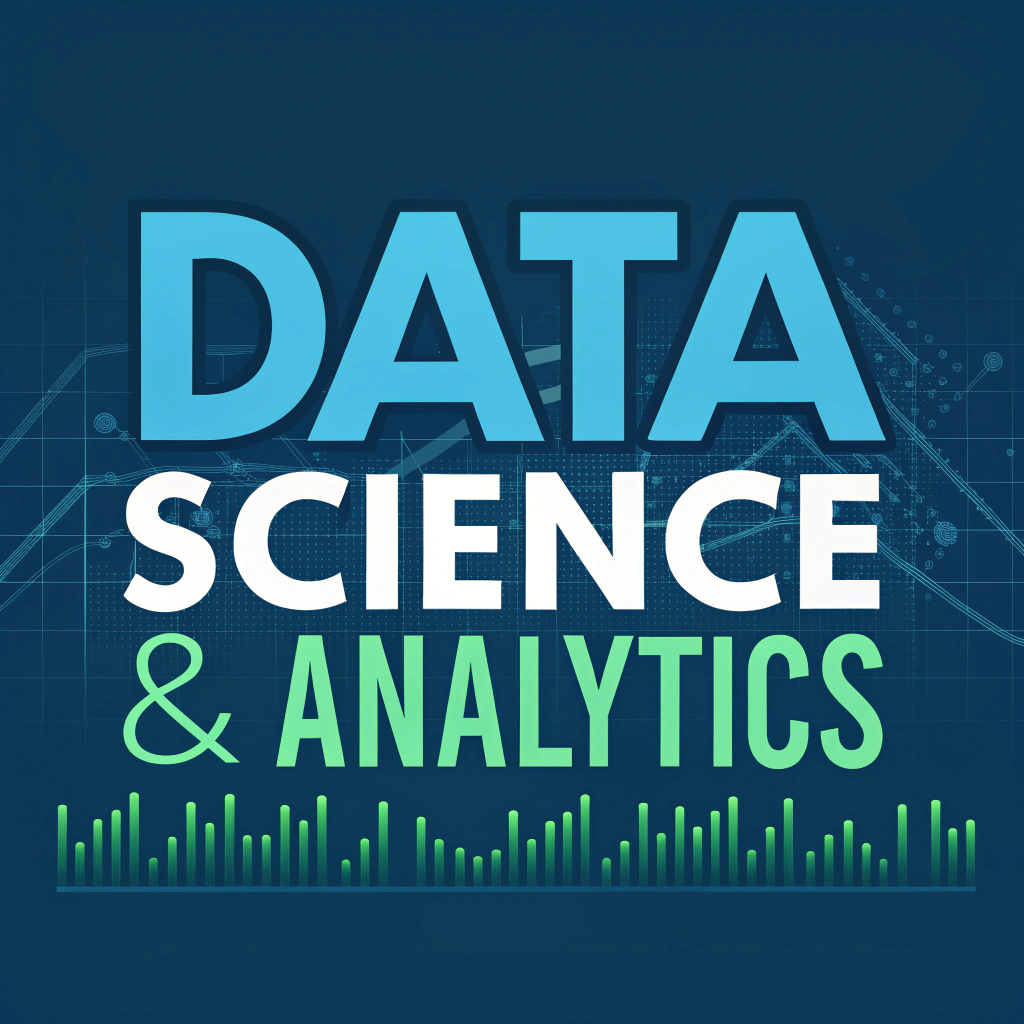 If Artificial Intelligence is the brain of the future, then Data Science is the fuel that keeps it alive. In 2026, data will no longer just be “collected”—it will be strategically analyzed, visualized, and transformed into actionable insights. Businesses that don’t leverage data will fall behind, while professionals skilled in Data Science & Analytics will be in massive demand.
If Artificial Intelligence is the brain of the future, then Data Science is the fuel that keeps it alive. In 2026, data will no longer just be “collected”—it will be strategically analyzed, visualized, and transformed into actionable insights. Businesses that don’t leverage data will fall behind, while professionals skilled in Data Science & Analytics will be in massive demand.
Why Data Science is a Key Technology Trend for 2026
Exploding Data Growth: By 2026, the world is projected to generate over 200 zettabytes of data. Every online purchase, click, video view, and IoT device generates data.
Business Competitiveness: Companies that use data-driven decision-making will be 19x more profitable than those that rely on intuition.
Predictive Power: Advanced analytics is helping businesses forecast sales, predict market shifts, and even detect fraud in real time.
Personalization at Scale: From e-commerce to education, personalized experiences will be driven by data analytics.
Think about how Amazon recommends products before you even search for them. Or how banks detect suspicious transactions instantly—that’s data science at work.
Career Opportunities in Data Science by 2026
Data Science isn’t just a trend—it’s one of the fastest-growing career fields in the world. Roles that will dominate by 2026 include:
Data Scientist – Creating algorithms to analyze large datasets.
Data Analyst – Turning raw data into meaningful insights.
Business Intelligence Analyst – Helping businesses make smarter decisions.
Big Data Engineer – Building infrastructure to handle massive amounts of data.
Data Visualization Expert – Making data easy to understand through dashboards and visuals.
According to industry projections, the global demand for data scientists will grow by 35–40% by 2026, with salaries among the highest in tech.
How Cambridge Infotech Helps You Become a Data Expert
At Cambridge Infotech, we know that students and freshers often ask: “How do I enter Data Science if I’m not from a tech background?” Our answer is simple: start with structured, step-by-step learning.
Our Data Science Course in Bangalore includes:
Fundamentals First: Statistics, Python, and SQL basics for beginners.
Hands-On Projects: Students work on real-time data problems—sales forecasting, fraud detection, and social media analytics.
Advanced Modules: Machine Learning, Deep Learning, and AI integration with data.
Placement Support: With our Placement Guarantee, students get career-ready with confidence.
For beginners, our program “AI and Data Science Course with Placement” is a perfect entry point to get a global certification that employers value.
Real-World Example: Data Science in Action
Take Healthcare in 2026—doctors won’t just prescribe medicine based on symptoms. Instead, data-driven insights from patient records, wearable devices, and genetic information will recommend the best personalized treatment plans.
Or in marketing, companies won’t waste money showing ads to everyone. Instead, analytics will help target the exact people who are ready to buy, saving businesses millions.
Why Students Should Act Before 2026
The future job market will not wait. By 2026, companies will expect candidates to already have data skills + certifications. Students who prepare today will be:
First in line for high-paying jobs
Globally employable (since data skills are universal)
Valued as problem-solvers, not just employees
Key Takeaway: Data is the new oil, but without skilled Data Scientists, it’s useless. If you want to ride one of the biggest technology waves of 2026, start learning Data Science now.
Trend 3: Cloud Computing & Edge Computing – The Backbone of 2026
If AI is the brain and Data is the fuel, then Cloud & Edge Computing are the highways that make the future possible. By 2026, the world will rely more than ever on fast, scalable, and secure digital infrastructure.
Why Cloud & Edge Computing Are Key Technology Trends for 2026
Cloud Everywhere: Businesses no longer want to invest in bulky servers. Instead, they prefer flexible cloud solutions that allow them to scale in seconds.
Edge Revolution: With billions of IoT devices (smart cars, sensors, wearables) coming online, Edge Computing ensures data is processed near the source—reducing delays.
5G + Edge = Instant Speed: Imagine downloading a 4K movie in seconds or running AI models in real time—this will be powered by 5G + Edge Computing.
Security & Compliance: With global data privacy laws (like GDPR and India’s DPDP Act), companies will rely on cloud platforms with built-in security & compliance.
By 2026, it’s estimated that 75% of enterprise data will be created and processed outside traditional data centers—showing how crucial cloud + edge will become.
Real-World Applications of Cloud & Edge Computing in 2026
Smart Cities: Traffic lights adjusting in real-time to reduce congestion.
Autonomous Vehicles: Cars communicating instantly with nearby infrastructure to avoid accidents.
Healthcare: Medical devices sending patient vitals directly to doctors for immediate response.
Gaming & Entertainment: Cloud gaming (like NVIDIA GeForce Now or Xbox Cloud) allowing high-quality games on any device without expensive hardware.
Business: Small startups using cloud tools for global collaboration without heavy investment.
Career Opportunities in Cloud & Edge by 2026
The job market for cloud professionals is booming. By 2026, skills in cloud platforms like AWS, Microsoft Azure, and Google Cloud will be as important as coding itself.
In-demand roles include:
Cloud Architect – Designing cloud infrastructure for companies.
Cloud Engineer – Deploying and managing cloud services.
DevOps Engineer – Automating processes with cloud tools.
Edge Computing Specialist – Building systems that work on the edge.
Cybersecurity Specialist – Protecting cloud systems from attacks.
According to Gartner, cloud services spending will exceed $1 trillion globally by 2026, making it one of the biggest technology markets of the decade.
How Cambridge Infotech Prepares You for Cloud Careers
At Cambridge Infotech, we understand that students want future-proof careers. That’s why we integrate cloud & edge computing concepts into our advanced courses.
Hands-On Training: Students deploy apps on AWS & Azure during the course.
Hybrid Learning: Learn how cloud works with AI, IoT, and Data Science.
Placement Support: Since companies across IT, finance, e-commerce, and healthcare need cloud experts, our placement cell connects students with top employers.
Certifications: We guide students to achieve AWS Certified Solutions Architect, Microsoft Azure Fundamentals, and Google Cloud Professional credentials.
Example: Cloud & Edge in Action
Imagine an autonomous ambulance in 2026. The vehicle collects data from patient monitors, shares it instantly with the hospital (via the cloud), and adjusts its route in real time (via edge computing + traffic signals). This life-saving combination is why cloud & edge are game-changers.
Why Students Should Learn Cloud & Edge Before 2026
Massive Demand: Every company, from startups to MNCs, is shifting to the cloud.
High Salaries: Cloud architects and engineers earn some of the highest packages in IT.
Future-Proof Skills: Cloud & edge computing will be essential for AI, IoT, and cybersecurity jobs.
Key Takeaway: Cloud & Edge Computing aren’t just trends—they’re the invisible backbone of the digital future. Students who master them will lead the next wave of innovation.
Trend 4: Cybersecurity & Privacy – Digital Safety in 2026
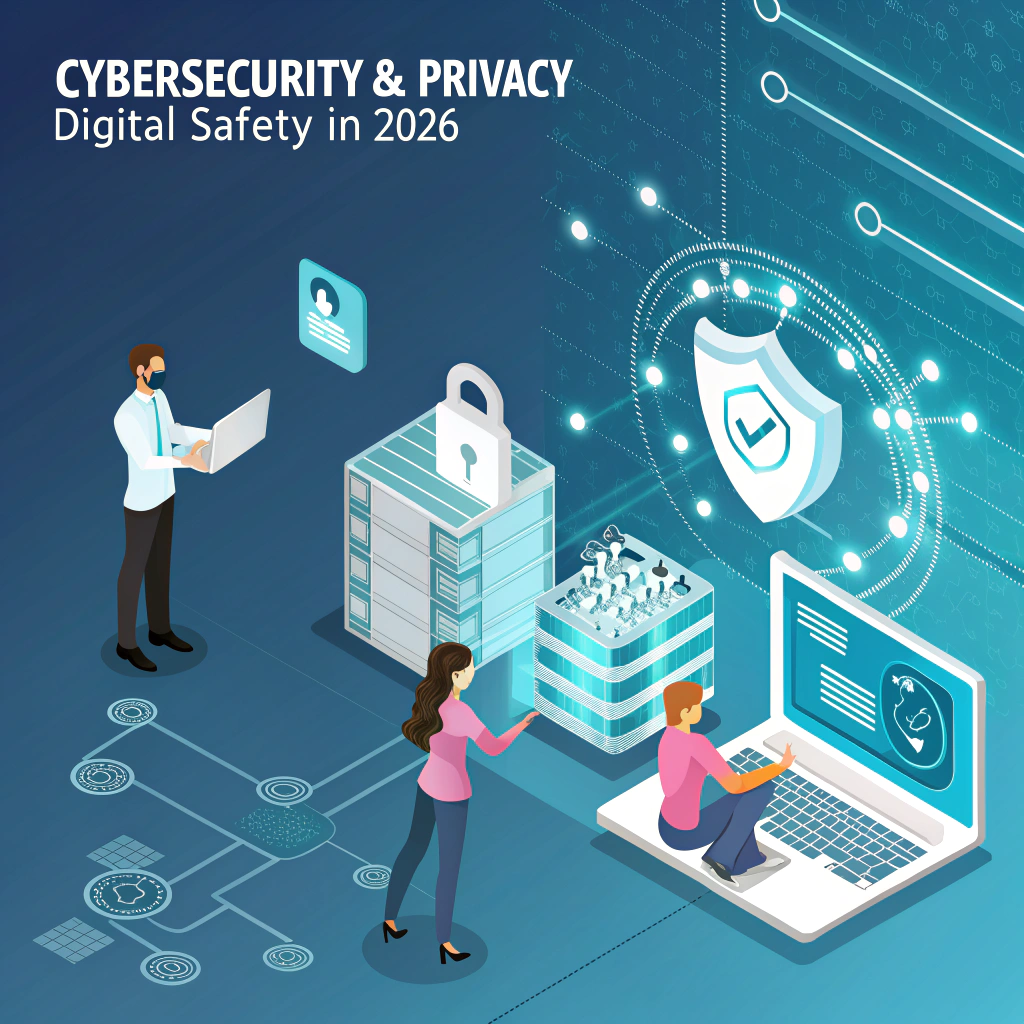 In today’s digital-first world, data is the new oil. But like oil, it can cause major disasters if leaked, stolen, or misused. That’s why Cybersecurity & Privacy have become one of the most important Key Technology Trends for 2026.
In today’s digital-first world, data is the new oil. But like oil, it can cause major disasters if leaked, stolen, or misused. That’s why Cybersecurity & Privacy have become one of the most important Key Technology Trends for 2026.
With billions of connected devices, AI-driven systems, and global digital transformation, the need for strong, intelligent, and adaptive cybersecurity is greater than ever.
Why Cybersecurity Is a Top Trend in 2026
AI-Powered Threats: Hackers now use AI to create sophisticated attacks. For example, deepfake scams, phishing bots, and automated hacking tools.
Data Privacy Laws: Countries are enforcing stricter rules (like GDPR in Europe, CCPA in the USA, and India’s DPDP Act 2023). Companies must comply or face hefty penalties.
Cloud & IoT Risks: As we saw in Part 3, cloud & edge are booming. But more devices = more entry points for cybercriminals.
Remote Work: Even in 2026, hybrid work will stay. Securing home networks, personal devices, and collaboration tools is a must.
National Security: Cyberattacks are no longer just corporate issues—they are weapons. Governments are investing heavily in cyber defense systems.
Did you know? By 2026, global cybercrime damages are expected to hit $10.5 trillion annually—making it the biggest threat to businesses worldwide.
Key Cybersecurity Technologies in 2026
AI in Cybersecurity – AI tools detect unusual activity and stop threats before damage occurs.
Zero Trust Security – “Never trust, always verify” approach ensures every access request is authenticated.
Quantum-Resistant Encryption – With quantum computing rising, new encryption methods will protect sensitive data.
Biometric Security – Face, iris, and fingerprint scans will replace traditional passwords.
Blockchain for Security – Tamper-proof digital ledgers will secure financial and healthcare data.
Real-World Applications of Cybersecurity in 2026
Finance: Banks using AI-based fraud detection to stop scams instantly.
Healthcare: Protecting patient data from ransomware attacks.
E-commerce: Securing online payments against identity theft.
Smart Homes: Preventing hackers from taking control of IoT devices like cameras and locks.
National Defense: Governments building cyber armies to defend against digital warfare.
Career Opportunities in Cybersecurity (High-Demand 2026 Jobs)
Cybersecurity is one of the fastest-growing job sectors in the world. By 2026, there will be 3.5 million unfilled cybersecurity jobs globally.
Hot Career Roles Include:
Cybersecurity Analyst – Monitoring threats and preventing attacks.
Ethical Hacker – Testing systems to find vulnerabilities before criminals do.
Security Architect – Designing robust security frameworks for enterprises.
Incident Responder – Handling breaches and minimizing damage.
Privacy Consultant – Helping businesses follow data protection laws.
Salary Insight: In India, a skilled cybersecurity expert can earn ₹8–20 LPA, while in global markets it can cross $150,000 annually.
Example: How Cybersecurity Saves Lives
Imagine a hospital in 2026 where AI-driven medical devices are connected to patients. If hackers break in, they could alter life-saving treatments. But with AI-powered cybersecurity, hospitals can detect unusual behavior instantly and stop attacks—literally saving lives.
How Cambridge Infotech Helps Students Build Cybersecurity Careers
At Cambridge Infotech, we prepare students not just to understand cybersecurity but to master it:
Hands-On Ethical Hacking Labs – Students practice real-world hacking & defense.
Global Certifications – Training for CEH (Certified Ethical Hacker), CISSP, CompTIA Security+, etc.
AI & Cybersecurity Integration – Learn how AI is used in threat detection.
Placement Guarantee Programs – Work with top IT firms, fintech companies, and cybersecurity agencies.
Why Students Must Learn Cybersecurity in 2026
Every Industry Needs Security – From banking to healthcare, cybersecurity is universal.
High Pay & Growth – Among the top-paying IT jobs globally.
Future-Proof Career – With cybercrime rising, demand will only grow.
Key Takeaway: Cybersecurity & Privacy are not optional—they are digital survival skills. Students who master them in 2026 will be the guardians of the digital age.
Trend 5: Quantum Computing & Future Innovations
While AI, Data Science, Cloud, and Cybersecurity are transforming the world we know, Quantum Computing promises to completely redefine the limits of computation. By 2026, quantum technology will no longer be just a research topic—it will impact industries, businesses, and daily life.
Why Quantum Computing Is a Key Technology Trend for 2026
Unprecedented Computing Power: Quantum computers can process complex calculations millions of times faster than classical computers.
Solving Real-World Problems: From drug discovery to climate modeling, quantum computing allows problems to be solved in hours instead of decades.
Cryptography & Security: Quantum computing will revolutionize data encryption, requiring new cybersecurity approaches.
AI Acceleration: Quantum algorithms can enhance machine learning models, enabling faster AI training and smarter predictions.
Financial Modeling: Banks and fintech companies will use quantum computing for risk analysis, portfolio optimization, and fraud detection.
By 2026, businesses that adopt quantum technology early will gain a massive competitive advantage, while nations investing in quantum R&D will dominate the tech landscape.
Real-World Applications of Quantum Computing in 2026
Healthcare: Modeling complex molecules to create next-generation drugs.
Energy & Environment: Optimizing energy grids and simulating climate models.
Finance: Running complex risk simulations in seconds.
Logistics: Optimizing global supply chains in real-time.
AI Research: Accelerating training for large-scale neural networks.
Career Opportunities in Quantum Computing
Quantum Computing will create highly specialized roles that combine physics, mathematics, and computer science. Some roles expected to be in demand by 2026:
Quantum Algorithm Developer – Designing algorithms for quantum machines.
Quantum Hardware Engineer – Building and maintaining quantum computers.
Quantum Data Scientist – Using quantum computing for data-heavy problems.
Research Scientist (Quantum AI) – Innovating at the intersection of AI and quantum computing.
Quantum Cybersecurity Specialist – Developing quantum-resistant encryption methods.
Salary Insight: Quantum computing experts are expected to earn $120,000–$250,000 globally, making it one of the most lucrative tech careers by 2026.
 How Cambridge Infotech Prepares Students for Quantum & Future Innovations
How Cambridge Infotech Prepares Students for Quantum & Future Innovations
At Cambridge Infotech, we recognize the importance of preparing students for next-generation technology:
AI + Quantum Integration: Learn how AI models can leverage quantum computing for faster results.
Hands-On Labs: Work with quantum simulators and cloud-based quantum platforms.
Future-Ready Curriculum: Courses designed to include emerging tech trends like blockchain, IoT, and quantum algorithms.
Placement & Mentorship: Guidance to enter top tech companies working in cutting-edge research.
Even if you are a beginner, our programs like AI and Data Science Course with Placement provide a foundation that can later extend into quantum and other advanced technologies.
Why Students Should Embrace Quantum Computing Now
Early Advantage: Students trained in quantum computing now will be among the first wave of experts in 2026.
Cross-Discipline Growth: Knowledge of AI, data, and cloud computing complements quantum computing skills.
Global Opportunities: Quantum computing careers are highly international, allowing students to work with top organizations worldwide.
Conclusion: Preparing for the Future with Cambridge Infotech
The Key Technology Trends for 2026—AI, Data Science, Cloud & Edge, Cybersecurity, and Quantum Computing—are reshaping industries, careers, and innovation. To stay ahead, students and professionals must upskill in these areas now.
Cambridge Infotech provides the courses, hands-on experience, and placement support necessary to thrive in this future-ready environment. From AI & Data Science to Cloud, Cybersecurity, and emerging technologies, our programs ensure you are job-ready and globally certified.
FAQs – Key Technology Trends for 2026
1. What are the key technology trends for 2026?
The major trends include Artificial Intelligence (AI), Data Science & Analytics, Cloud & Edge Computing, Cybersecurity, Quantum Computing, Blockchain, IoT, 5G, AR/VR, and Sustainable Tech.
2. Why is AI considered a top technology trend in 2026?
AI is becoming integral to business operations, personal devices, healthcare, and digital marketing. It enables automation, predictive analytics, and smarter decision-making.
3. How is Data Science transforming businesses in 2026?
Data Science converts massive amounts of data into actionable insights, enabling predictive modeling, personalized marketing, and smarter business strategies.
4. What role does Cloud & Edge Computing play in future technology?
Cloud & Edge Computing provide scalable, secure, and fast infrastructure, powering AI applications, IoT devices, real-time analytics, and digital businesses.
5. Why is Cybersecurity critical in 2026?
With digital transformation, remote work, and AI integration, cybersecurity protects businesses and individuals from sophisticated cyber threats and ensures data privacy compliance.
6. What is Quantum Computing and why is it important?
Quantum Computing processes data exponentially faster than classical computers. It revolutionizes AI, drug discovery, financial modeling, and complex simulations.
7. How can students prepare for careers in these emerging technologies?
Students can enroll in courses like AI, Data Science, Cybersecurity, Cloud Computing, and Quantum Computing offered by Cambridge Infotech to gain hands-on experience and global certifications.
8. Are these technology skills in demand globally?
Yes, skills in AI, Data Science, Cloud, Cybersecurity, and Quantum Computing are highly sought-after worldwide, with rapidly growing job opportunities and competitive salaries.
9. Does Cambridge Infotech provide placement support for these courses?
Yes, Cambridge Infotech offers placement assistance, internships, and industry connections to help students secure roles in top IT and tech companies.
10. Can beginners start learning these technologies?
Absolutely! Cambridge Infotech offers beginner-friendly courses with structured learning paths, hands-on projects, and mentorship to help anyone start a tech career, even without prior experience.
Student Success Story: Jemima
“Joining Cambridge Infotech’s AI & Data Science course completely transformed my career. The hands-on projects and expert guidance helped me land a role as a Data Analyst. The Key Technology Trends for 2026 are no longer intimidating—I’m ready to thrive in them!”
Career Growth Journey: Sabith Ahmed
“The comprehensive curriculum and real-world exposure at Cambridge Infotech gave me the skills to step into AI and Cloud Computing confidently. Today, I’m working as a Machine Learning Engineer, prepared for the top technology trends of 2026.”
Inspiring Journey: Priya
“Before joining Cambridge Infotech, I had no direction in tech. The AI, Data Science, and Cloud Computing training boosted my confidence and skills. Now, I’m working as an AI Research Associate and feel fully prepared for the technology-driven future of 2026.”
Ready to Master the Top Technology Trends for 2026?
Don’t wait for the future—build it today! Visit Cambridge Infotech and enroll in our AI, Data Science, Cloud, Cybersecurity, and Quantum Computing courses to start your journey toward a future-ready career.

